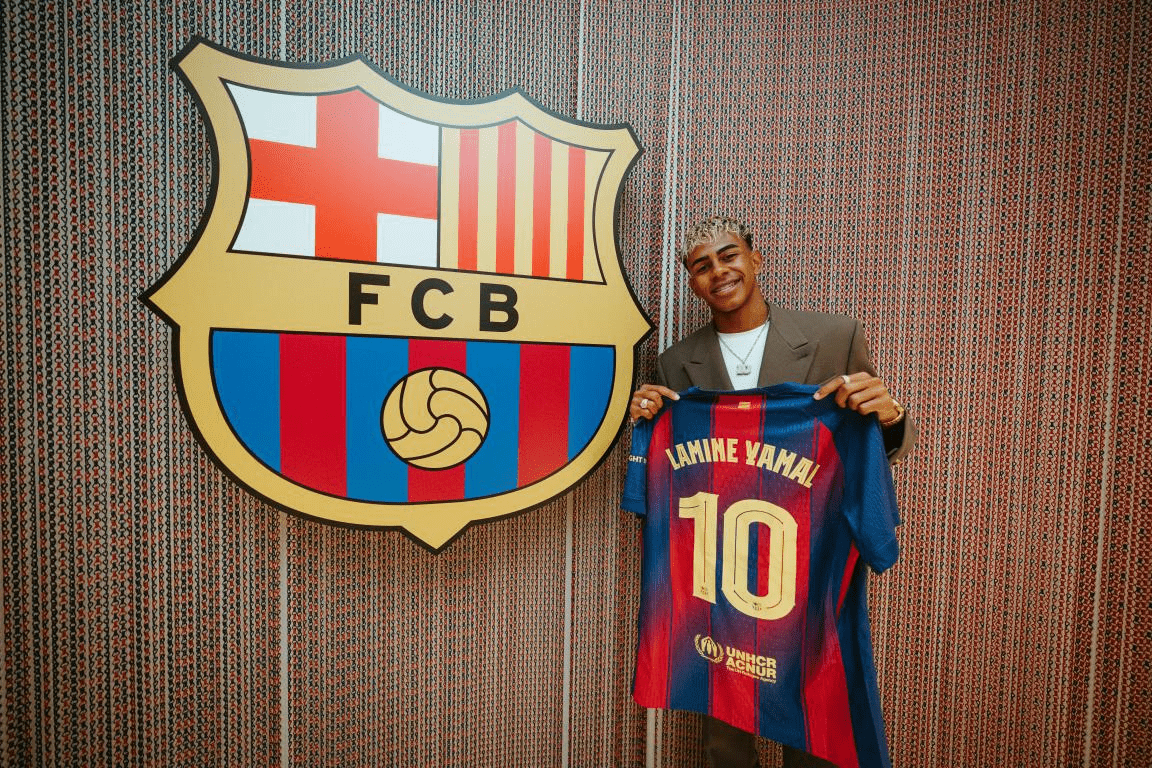Hansi Flick: The rchitect of Barcelona’s domestic treble triumph
A treble!
A domestic treble at that, not quite the set of three
the team worked so incredibly hard for (still unable to move past that hurdle),
but in all honesty, it counts the same, means a lot more and with perspective
it is that much more impressive.
Here comes in Hansi Flick.
A lot has been said about him already, but now that
his team has just obliterated opponents left, right and centre on their way to
an immensely successful campaign, there’s just so much more about him and his
managerial facets to praise.
Add into the mix the fact that this was his first
season, thrown into an extremely volatile environment hot off a debacle hiring
process and a hugely disappointing season, Flick has truly pulled off a
miracle. And it’s worth exploring, how?
The tactics board
It is very safe to say Hansi Flick in his first year,
revolutionized the Barcelona model for a very long time to come. More
importantly with a similar pool of players, there has been a stellar result.
Since day one, the 60-year-old instilled his trademark
style of ‘gegenpressing’ and vertically direct football into the
squad and when the going got tough, he simply doubled down on it and look what
he reaped.
There were doubts about the squad’s ability to
implement this highly taxing system, given how his predecessor Xavi too tried
to introduce this to the squad a year prior and the results were less than
favourable, to say the least.
From the formation to the style of play to the setup
of the team, Flick’s Barcelona were indeed complex. But his coaching made it
look admirably easy for the players and easily embarrassing for the opponents.
Falling on data to suffice – 150+ goals scored and
over 170 offsides caught, these are some pretty hefty numbers and impressive
enough to power the team to a domestic sweep.
Revolution.
A tale of two decisions
Flick’s first action was to double down on his
tactical identity of his team. And it definitely paid off. But truth be told,
the success of this season came down to two decisions that the coach took on
his own accord that set the team up as a serious contender for the treble.
Earlier in the season Barcelona suffered a big loss at
the very base of the eleven when captain and first-choice goalkeeper Marc-Andre
ter Stegen was ruled out for the majority of the season with a gruesome injury.
Substitute option Inaki Pena was called upon to
deputize and it’s fair to say he did well to hold his own against the likes of
Bayern Munich and Real Madrid.
But here’s the dilemma, Barcelona’s incredible start
to the season fizzed out by December when they completely blew a ten-point lead
to over challengers Real Madrid and even slipped to third after their most
heartbreaking loss up to that point against Atletico Madrid.
To stop the rot and the slump, with an eye on his first prize as Barcelona coach, Flick deployed emergency signing Wojciech Szczesny in goal during the Supercopa de España.
As it happened, post securing their first of their
domestic treble in Riyadh with another humbling of their rivals in white,
Szczesny became the preferred option in goal over Pena, which seemed to be
harsh to the youngster at the time.
The benefits, however, were clear for all to see.
Barcelona didn’t lose a single league game in 2025 in their run-up to the title
and won all of their games barring one against Getafe, the first of the year.
Szczesny even put in some incredible performances such
as his heroics versus Benfica in the Round of 16 of the Champions League to
merit his manager’s decision.
In all essence, Flick’s gamble paid off massively.
Szczesny initially seemed to be struggling to meet the demands of the high line
and even his ball-playing ability was a question mark, but slowly and surely he
grew into an assured figure at the back.
Speaking of decisions that paid off, a word about
Flick’s tweak in midfield of pairing Frenkie de Jong with Pedri. Make no
mistake, Marc Casado was doing great as a pivot partner for the magical Pedri,
bringing a semblance of balance and solidity.
But the manager wanted more dynamism from his midfield and De Jong, unable to rediscover his form and rhythm post a lengthy injury, was soon starting games in place of the La Masia graduate.
Now looking back at the season, the Pedri-Frenkie
pivot – initially metaphorised as a straw used to guard the door given both of
their frailties in defence – thrived under Flick.
Pedri was already profiled aptly by the boss but it
was Frenkie’s all-round game unlocked by Flick and his system that shone a
spotlight on his coaching and understanding of his squad.
It was a call that was quickly justified and had
clearly improved the team across both ends. The Dutchman was definitely more of
a threat with the ball at his feet thanks to his ridiculous capacity to carry
the ball deep into defences.
But it was his defensive acumen that really improved
leaps and bounds this season, able to use his quality to cover large distances
to track back timely to stop counter.
After what seemed to be a season of struggle and disappointment for the Dutchman, De Jong once again proved he is indispensable to the success of the club.
Overall, these two calls by Flick proved to be a
masterstroke. There was visible and audible confusion when they were made but
it showed Flick’s observant eye and his innate knowledge of the system he
enforced, the profiling it needed or even the characters.
It even speaks of his leadership skills that such upheavals could have rubbed off weirdly on the squad, but from looking at the celebrations, both Casado and Pena looked happy to have played a part in the success of the team.
Flick Mentality
A challenge for the league title is a more ‘honest’
one, with consistency required across the entire season. However, none of the
journeys to success will be without their hurdles.
Barcelona too suffered from stumbling blocks throughout their season. But the mentality the team showed thanks to the fortitude and resilience drilled into them by their leader in the dugout was remarkable.
Who could have imagined a Barcelona side trailing a
resolute and dogged Inter Milan by two goals would go on and almost win the
game? That too away from home.
Or let’s talk about the match that set them on their
way to the league title, a resounding and battling win over Atletico away,
where they scored four within 20 minutes to wrestle back the game and their
destiny to win La Liga.
If there’s anything that Flick has done exceptionally
well and beyond any spot of a doubt, is revamped the mental make-up of his
young team.
It stems from their rigorous training regimes,
physically extracting routines and quite frankly his entire philosophy to simply
not stop mowing down their opponents no matter the scoreline or the depth of
the pit they often found themselves in but manage to reel out rather
emphatically.
It is also important to acknowledge the mentality
monsters he created in the process. Pau Cubarsi is a silent yet fearless leader
from the back. Lamine Yamal at only 17 carries his team on his back like no
other.
Ferran Torres is already more of a shark than a shark
ever was. Raphinha is very the soul of the team with his tireless running. Pedri
too has combined his inexplicable brilliance in the middle of the park with a
commitment to keep plugging away and chasing down yards.
Flick may have created a team full of burgeoning young
stars, but look closer or probably when the chips are down or even when they
trail by two goals, it is an even bolder Barcelona team that arises out of the
ashes. And they are simply unstoppable.
Flick Ball: A wider influence
This may be very well to conclude, but there has been
a very real yet intangible impact of Hansi Flick’s arrival on Barcelona as an
institution.
Sure, he led the team to a complete sweep of the
domestic cabinet and was just 140 seconds away from a shot at European glory
but probably the biggest miracle he worked out was the restoration of universal
belief in Barcelona’s special relationship with football.
His commitment to Flick-ball, a high-octane,
full-throttle style of play rendered the most enjoyable Barcelona side in years
if not outright the most beautiful team to witness in a decade or so.
It re-affirms what the Blaugrana stands for
on the pitch. An institution committed to playing the game in the purest way
possible, able to captivate the crowd with the ball at their feet.
Flick and his young guns have just brought back that
joy of playing, watching and breathing football not just to the city or
themselves but to the world.
For Barcelona, there has been no greater mission. In the words of Johan Cruyff, ‘Salir y Disfrutar’ – ‘go out and enjoy’ is not a quote to preserve but a belief to channel. It is precisely what separates the club from other teams and precisely what makes them ‘Mes que un Club’.
So, thank you Hansi Flick. Yes, to restore glory to
the club. But to make the world fall in love with football again. For choosing
Barcelona to make that happen.
And thankfully for them, you get to do it again next
season.




No comments yet
Be the first to share your thoughts!